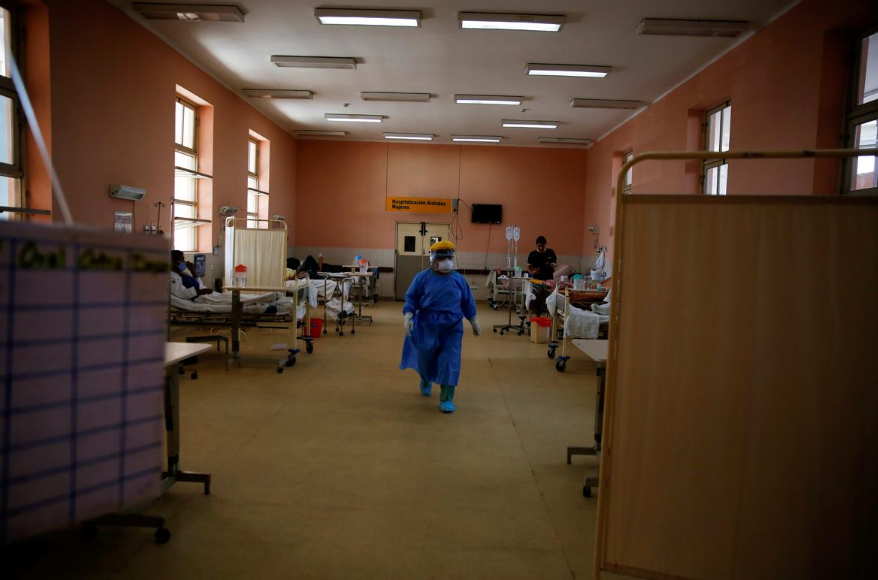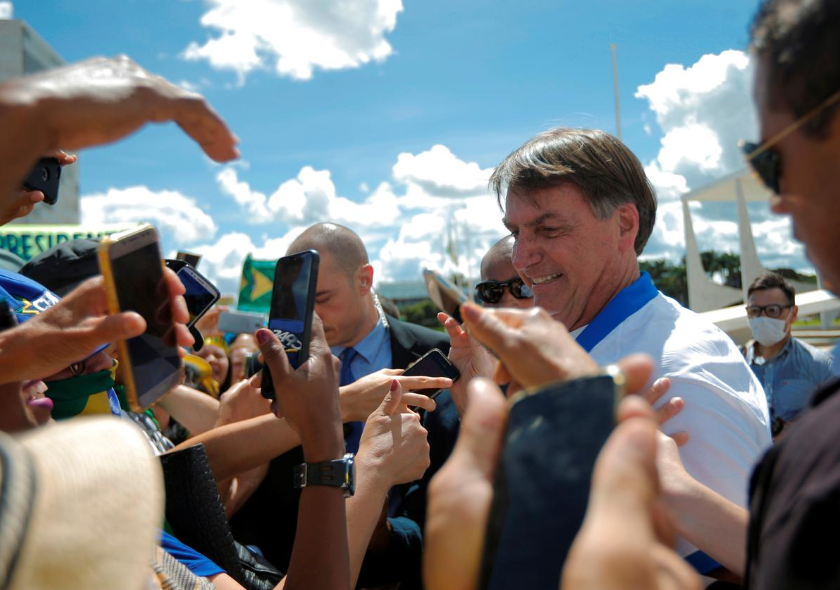Editor's note: This is the 43rd article in the COVID-19 Global Roundup series. Here is the previous one.
On Monday, government officials in Chile said they would move ahead with plans to issue the world's first "immunity passports," cards that allow people who have recovered from COVID-19 to return to work. As physicians warned against the idea due to the uncertainty over coronavirus immunity, the plan to roll out these cards saw pushbacks from some people.

Yet Chile is not alone. Countries including Germany, Italy and Britain have also considered the idea, while the World Health Organization has shunned from discussing it.
According to the country's health ministry, more than 4,600 people will now be eligible to receive physical or digital cards. Quarantines and other restrictions will not be mandatory for them anymore.
Chile, with the third-highest COVID-19 tally in Latin America, also reported Sunday that the total number of confirmed cases has surpassed 10,000, as the disease ravages the economy of the world's top copper producer.
Large swaths of Santiago, a city of six million, are under lockdown, and virtually all non-essential businesses have been closed for weeks. The government has imposed a nationwide curfew each night, quarantines in large sections of the capital and other regions, and highway checkpoints to restrict travel.
The country has already announced a stimulus package of 17 billion U.S. dollars, worth more than five percent of gross domestic product. The measures include beefed-up unemployment checks and government-backed credit lines for small business.
The coronavirus is only the latest of Chile's economic headaches. Mass protests and riots over inequality that broke out late in 2019 had already disrupted the country´s economy, leaving businesses with billions in losses and hammering growth and investment.
Stimulus measures to combat the coronavirus pandemic will deepen the fiscal deficit to eight percent, the largest gap since at least 1990, the government said on Friday.
On the same day when Chile's number made a mark, its neighbor Peru reported over 15,000 cases of coronavirus, the second-highest tally in Latin America, as the disease continues to ravage the economy of the world's No. 2 copper producer.
The crisis has paralyzed Peru and left millions without jobs. The central bank has said the economy had been "severely affected" temporarily by simultaneous supply and demand shocks.

A nurse walks in a ward reserved for patients diagnosed with the coronavirus disease (COVID-19) at the Dos de Mayo national hospital, in Lima, Peru April 16, 2020. /Reuters
A nurse walks in a ward reserved for patients diagnosed with the coronavirus disease (COVID-19) at the Dos de Mayo national hospital, in Lima, Peru April 16, 2020. /Reuters
Peru recorded its first coronavirus case on March 6 and took 25 days to reach 1,000 cases. It took only 14 more days to reach 10,000 cases on April 14, according to a Reuters tally. Peru has so far reported a total of 16,325 cases and 445 deaths, the health ministry said.
On March 15, Peru announced it would close its borders and called on citizens to self-quarantine for 15 days with just 71 recorded coronavirus cases. The nationwide quarantine has since been extended to April 26. Prime Minister Vicente Zeballos said on Sunday that the lockdown would continue for a few more weeks.
Peru's government has announced a massive economic stimulus package worth 90 billion soles (26.41 billion U.S. dollars), around 12 percent of gross domestic product, to support citizens and the key mining sector.
In Brazil, which has the largest number of confirmed cases in the region, it is witnessing an increasingly irreconcilable crack between the pro-lockdown camp and those who oppose it. People calling for economic normalcy to resume took to the streets during the weekend, with most protesters supporting President Jair Bolsonaro's position to lift lockdown measures.

Brazil's President Jair Bolsonaro meets supporters during a protest against Brazil's Congress and Brazilian Supreme Court amid the coronavirus outbreak, in Brasilia, Brazil, March 15, 2020. /Reuters
Brazil's President Jair Bolsonaro meets supporters during a protest against Brazil's Congress and Brazilian Supreme Court amid the coronavirus outbreak, in Brasilia, Brazil, March 15, 2020. /Reuters
Bolsonaro, one of the few global leaders who has openly railed against lockdown measures to combat the coronavirus, also attended these public rallies on both Saturday and Sunday and attacked the country's supreme court and legislature for blocking attempts to cancel the suspension of economic activities. Brazil has so far recorded 40,581 confirmed cases and 2,575 deaths.
The president, who was not wearing a face mask, addressed a crowd of a few hundred in Brasilia, many of them wearing Brazil's yellow-and-green soccer jersey.
His brief address, which was punctuated by the president coughing, touched on talking points that have become his usual rallying cry. He called those in attendance "patriots" and said they were helping defend individual freedoms that he said are under threat by lockdowns imposed by authorities at the state level.
"Everyone in Brazil needs to understand that they are subject to the will of the people," Bolsonaro said.
Protesters in Brasilia chanted slogans against the country's Supreme Court, which has upheld state-organized lockdowns, and against Congress, whose opposition lawmakers have also defended quarantines. Some of the protesters also advocated a military intervention on behalf of the president and called for a return to authoritarian measures used during Brazil's last military regime, known as AI-5.
In Sao Paulo, Brazil's richest and most populous state, Bolsonaro supporters have been demanding that governor Joao Doria resign because he has been a staunch supporter of shelter-in-place measures.
(With input from Reuters)
(Cover image: A man crosses an empty street, as most people stay at home amid the COVID-19 outbreak, in Vina del Mar, Chile, March 20, 2020. /Reuters)